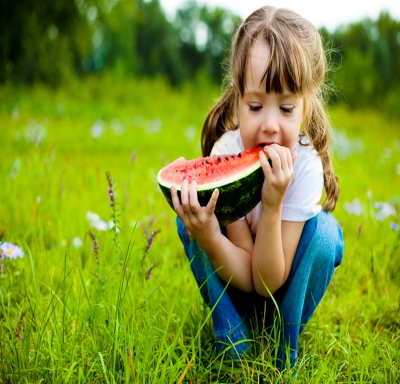Food for thought: How certain foods can improve mental health
How certain foods can improve mental health
While it's widely known that nutrition plays a key role in a person's physical health, it directly affects emotional well-being, too. "We tend to separate our brain from the rest of our body, but good health means good health from a holistic perspective — from head to toe," says Dr. Gabriela Cora, a board-certified psychiatrist and a medical director for Aetna Behavioral Health. "Why wouldn't we think eating well would also impact our mental health?”
With that in mind, let’s look at the foods you should put in your shopping trolley (cart) and on your plate. You’ll want to aim for a mix at mealtimes.
Whole foods
Some studies have shown that preservatives, food colorings and other additives may cause or worsen hyperactivity and depression. So, opt for food that’s minimally processed and has a few healthy ingredients. Studies show that increased consumption in fruit and vegetables (just one fist sized portion per day) could be as beneficial to mental well-being as going for a walk an extra seven to eight days a month.
Fibre
Plant-based foods are full of fibre, which helps your body absorb glucose — or food sugars — more slowly and helps you avoid sugar rushes and crashes. Fibre-rich foods include fruits, vegetables, and nutrient-filled carbs like whole grains, fruit, vegetables and legumes like peas and beans. Research findings indicate that increasing your intake of fibre-rich foods could be a successful strategy in reaching old age free from depression and dementia.
Antioxidants
These inflammation fighters are especially plentiful in berries, beans, apples, leafy green vegetables, the spice turmeric and foods with Omega-3 fatty acids, including salmon and black chia seeds. Dark chocolate also contains antioxidants — and sugar — so indulge in moderation. Including foods with a high antioxidant content in your diet is thought to correlate with easing the symptoms of anxiety disorders.
Folate
This type of B vitamin (B9) helps with dopamine production without forcing it to surge the way sugars do. Find it in leafy greens, lentils and cantaloupes. Vitamin B9 helps send signals for repair and regeneration in the brain, so low folate symptoms include depression and a long-term lack of B9 can lead to dementia. Think eggs, salmon, non-fat yogurt, black-eyed peas, asparagus, broccoli, oranges, and avocadoes.
Vitamin D
Vitamin D helps with the production of serotonin, and we usually get it from exposure to sunlight. But mushrooms — especially reishi, cordycep and maitake — are another good source. As are fortified milk, eggs, and fish (wild salmon, tuna, mackerel). If you’re deficient in vitamin D, or if you have a vegan diet or find it hard to get exposure to natural direct sunlight, your doctor may also recommend taking a supplement.
Magnesium
This essential mineral is vital to the food-mood connection; a mineral deficiency can hurt the bacteria in your gut and cause depression and anxiety-like symptoms. Load up with natural sources such as dark chocolate, cacao nibs, almonds and cashews, spinach and other dark leafy greens, bananas and beans. A 2017 review looked at 18 studies which concluded that magnesium did reduce anxiety.
Fermented foods
Mental disorders including depression and anxiety are often comorbid with gut problems, suggesting a bidirectional relationship between mental health and gut function. Fermented foods are packed with probiotics, live bacteria that are good for your digestive tract. Examples include sauerkraut, kimchi, miso, tempeh and the fermented drink kombucha. (These foods also tend to be high in sodium, so consume in moderation or skip altogether if you have high blood pressure.)
Help for healthier living
Whether you’re an individual looking to improve your health and wellness with self-care resources, or an organisation taking steps to help build a more resilient workforce, there are programmes and resources that can help.
Sources:
- https://www.aetna.com/health-guide/food-affects-mental-health.html
- https://www.cnn.com/2019/02/18/health/diet-mental-health-partner/index.html
- https://www.medicaldaily.com/health-benefits-fiber-foods-aging-well-major-depression-dementia-high-blood-388450
- https://academic.oup.com/biomedgerontology/article/71/10/1335/2198172
- https://www.ncbi.nlm.nih.gov/pmc/articles/PMC3964743/
- https://www.psychologytoday.com/us/articles/201901/the-folate-factor
- https://medalerthelp.org/vitamin-b9-foods/
- https://brainmd.com/blog/ease-anxiety-with-vitamin-d/
- https://www.healthline.com/health/magnesium-anxiety
This information is not intended or implied to be a substitute for professional medical advice, diagnosis or treatment. All content, including text, graphics, images and information is for general information purposes only.





